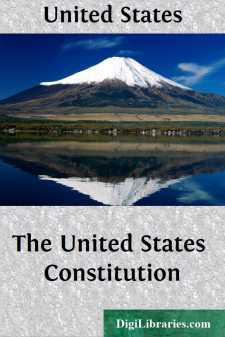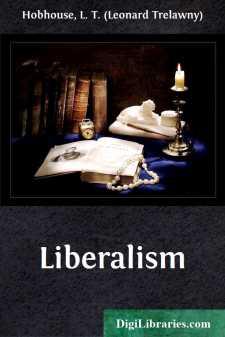Categories
- Antiques & Collectibles 13
- Architecture 36
- Art 48
- Bibles 22
- Biography & Autobiography 813
- Body, Mind & Spirit 142
- Business & Economics 28
- Children's Books 15
- Children's Fiction 12
- Computers 4
- Cooking 94
- Crafts & Hobbies 4
- Drama 346
- Education 46
- Family & Relationships 57
- Fiction 11829
- Games 19
- Gardening 17
- Health & Fitness 34
- History 1377
- House & Home 1
- Humor 147
- Juvenile Fiction 1873
- Juvenile Nonfiction 202
- Language Arts & Disciplines 88
- Law 16
- Literary Collections 686
- Literary Criticism 179
- Mathematics 13
- Medical 41
- Music 40
- Nature 179
- Non-Classifiable 1768
- Performing Arts 7
- Periodicals 1453
- Philosophy 64
- Photography 2
- Poetry 896
- Political Science 203
- Psychology 42
- Reference 154
- Religion 513
- Science 126
- Self-Help 84
- Social Science 81
- Sports & Recreation 34
- Study Aids 3
- Technology & Engineering 59
- Transportation 23
- Travel 463
- True Crime 29
Democracy in America - Volume 2
by: Henry Reeves
Categories:
Description:
Excerpt
Chapter I: Philosophical Method Among the Americans
I think that in no country in the civilized world is less attention paid to philosophy than in the United States. The Americans have no philosophical school of their own; and they care but little for all the schools into which Europe is divided, the very names of which are scarcely known to them. Nevertheless it is easy to perceive that almost all the inhabitants of the United States conduct their understanding in the same manner, and govern it by the same rules; that is to say, that without ever having taken the trouble to define the rules of a philosophical method, they are in possession of one, common to the whole people. To evade the bondage of system and habit, of family maxims, class opinions, and, in some degree, of national prejudices; to accept tradition only as a means of information, and existing facts only as a lesson used in doing otherwise, and doing better; to seek the reason of things for one's self, and in one's self alone; to tend to results without being bound to means, and to aim at the substance through the form;—such are the principal characteristics of what I shall call the philosophical method of the Americans. But if I go further, and if I seek amongst these characteristics that which predominates over and includes almost all the rest, I discover that in most of the operations of the mind, each American appeals to the individual exercise of his own understanding alone. America is therefore one of the countries in the world where philosophy is least studied, and where the precepts of Descartes are best applied. Nor is this surprising. The Americans do not read the works of Descartes, because their social condition deters them from speculative studies; but they follow his maxims because this very social condition naturally disposes their understanding to adopt them. In the midst of the continual movement which agitates a democratic community, the tie which unites one generation to another is relaxed or broken; every man readily loses the trace of the ideas of his forefathers or takes no care about them. Nor can men living in this state of society derive their belief from the opinions of the class to which they belong, for, so to speak, there are no longer any classes, or those which still exist are composed of such mobile elements, that their body can never exercise a real control over its members. As to the influence which the intelligence of one man has on that of another, it must necessarily be very limited in a country where the citizens, placed on the footing of a general similitude, are all closely seen by each other; and where, as no signs of incontestable greatness or superiority are perceived in any one of them, they are constantly brought back to their own reason as the most obvious and proximate source of truth. It is not only confidence in this or that man which is then destroyed, but the taste for trusting the ipse dixit of any man whatsoever. Everyone shuts himself up in his own breast, and affects from that point to judge the world....












